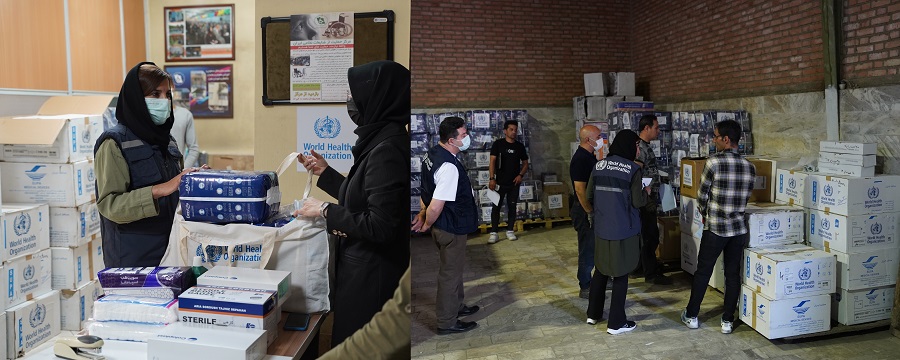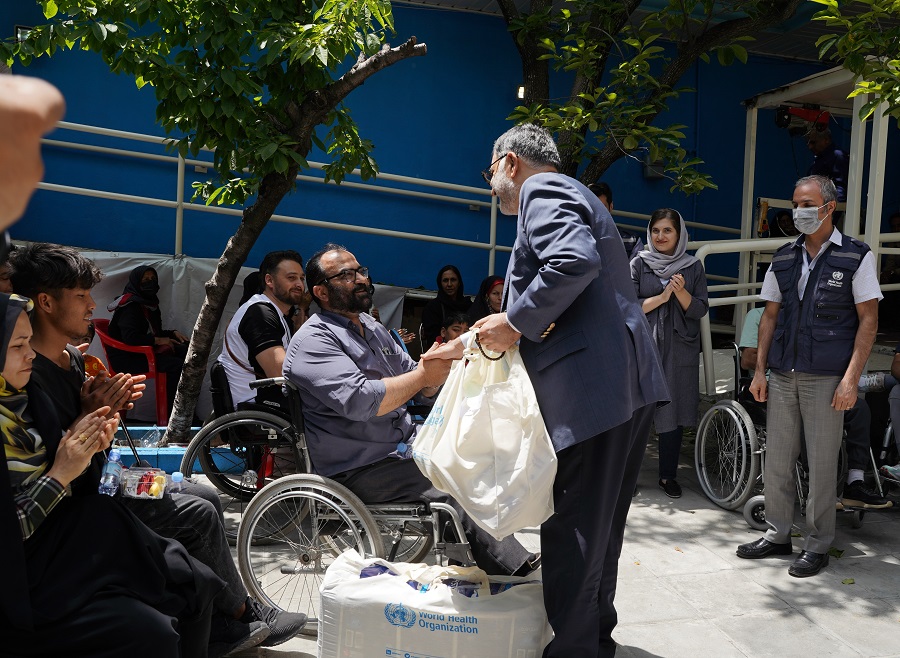 Arrangements and coordination of the WHO team at the warehouse and assistance in the packaging of provided health-related and hygienic consumables for people living with severe disabilities
Arrangements and coordination of the WHO team at the warehouse and assistance in the packaging of provided health-related and hygienic consumables for people living with severe disabilities
17 May 2023 – World Health Organization and the Association for Protection of People with Spinal Cord Disabilities joined forces to collaborate in reaching the most vulnerable population to provide support in the daily need for health-related hygienic consumables.
Through the established foundation for improving the quality of life and access to essential health services for people living with disabilities, WHO is working with local nongovernmental organizations (NGOs) for achieving more equitable, inclusive and comprehensive goals. One hundred and twenty (120) identified individuals with severe disabilities, including national and refugee populations received a tailored package according to their needs and type of disability in a ceremonial event and home delivery for those with physical movement limitations.
“Once again, I am delighted to express WHO’s pleasure in collaboration to identify the need and prioritization of the affected population and distribution of most-in-need items and consumables among people living with disabilities. People living with any kind of disability deserve every right to have a normal life and contribute to society as a productive member,” said Dr Syed Jaffar Hussain, WHO Representative and Head of Mission to the Islamic Republic of Iran. He added, “You inspire us with your strong will and everlasting hope,” addressing the people living with disabilities in the event.
The Director of the Association for Protection of People with Spinal Cord Disabilities Ms Yarmohammadi elaborated on the almost 2-year collaboration between WHO and the Association and highlighted the results of the ECHO project in equipping 30 long-term care facilities with standard isolation rooms and distribution of 1000 assistive technologies to the prioritized individuals out of which 27 were delivered through the Association. “WHO is planning to initiate another project targeting Sistan and Balochistan province to identify the needs of people living with disabilities to provide aids for daily living (ADLs) and assistive technologies (ATs) for marginalized people, including refugees” stated Ms Yarmohammadi.
“Today’s event emphasizes the absolute need for health-related consumables for daily use by people living with disabilities. The tailored packages that we have jointly distributed to the 120 prioritized individuals with severe disabilities consist of standard adult catheters and sterile and non-sterile items, and wound dressing,” said Dr Rahim Taghizadeh, Healthier Population Team Lead at the WHO country office.
 A person with a spinal cord disability receives a tailored package of health-related and hygienic consumables from Dr Syed Jaffar Hussain at the Association for Protection of people living with spinal cord disabilities
A person with a spinal cord disability receives a tailored package of health-related and hygienic consumables from Dr Syed Jaffar Hussain at the Association for Protection of people living with spinal cord disabilities
The highlighted achievement of the concerted action of national and international partnership in this effort is the completed cycle of supply chain management from need identification to delivery to the beneficiary.
Dr Hussain reiterated that WHO would continue its support by securing funding for the expansion of these activities and the provision of support for people in need. WHO will continue supporting local capacities and cross-sectional collaboration to achieve health and well-being for all.


